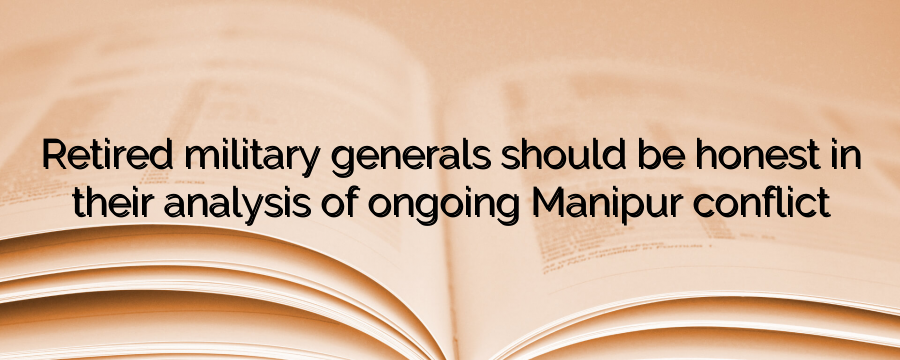Retired Lt. Gen. Ravi Shankar’s recent lecture at PGurus titled “Is Myanmar Army coming apart? Implications for India, China” delves into the intricate nexus between Myanmar’s drug economy, the ongoing turmoil in Manipur, and its implications for regional powers like India and China. Highlighting the transition from opium to methamphetamine production in Myanmar, Lt. Gen. Shankar underscores the role of Manipur as a conduit for the trafficking of chemicals essential for methamphetamine production, with supplies originating from both India and China.
According to Lt. Gen. Shankar, Meitei underground groups are instrumental in facilitating the transportation of these chemicals to Myanmar, with assistance from Kuki militants. This collaboration has led to the proliferation of poppy cultivation in Kuki-dominated areas, exploiting similar topographical and climatic conditions found in traditional poppy-growing regions. This phenomenon, spanning two decades since the 2000s, has contributed significantly to the ongoing conflict in Manipur, driven primarily by competing interests in the lucrative drug trade rather than religious or ethnic divides. One praiseworthy point he makes in the connection with the rise of insurgency and drug trade in Manipur has been fuelled by the lack of opportunities for the youths in the state as the state government has completely failed in this regard.
Moreover, Lt. Gen. Shankar questions the legality of the Kangla Declaration, suggesting it may have clauses which contravene constitutional principles—a viewpoint he asserts with confidence.
However, Lt. Gen. Shankar’s analysis overlooks another critical dimension—the systematic militarization of the Kuki tribe by central government agencies. It also needs to be reminded that the history of inter-community relations in Manipur has not always been of animosities and conflicts. As evidenced by the Naga-Kuki conflict of 1993, when thousands of Kukis had to flee Naga areas sought refuge in Imphal and were offered shelter by the Meiteis, which aggravated the Nagas who sought to expel the Kukis from the state. Despite the discord, the Meiteis stood by the Kukis, showcasing solidarity. Additionally, reflections from Kuki intellectuals and politicians underscore a sense of nostalgia for a bygone era when they collaborated with the Meitei monarch to defend the territory against Naga raids.
However, this sense of camaraderie has since eroded due to various factors contributing to the rupture of cohesive existence among communities. One significant factor contributing to the discord is the role of the Indian military and central government agencies. Many academics have pointed out that the emergence of Kuki-Zo militancy can be attributed to these agencies who used Kuki-Zo armed men to fight the Nagas and Meiteis and with the signing of the Suspension of Operations the relationship between Kuki-Zo militants and Central forces have been formalized. Moreover, retired intellectuals from the Indian army have further fueled tensions by promoting narratives like the Anglo-Kuki War by Brigadier Sushil Kumar and Col. Vijay Chenji. These narratives helped transform what Kuki-Zo intellectual like Lal Dena and many others called Kuki Rebellion to Anglo Kuki war which has angered the Meiteis on the grounds that these narratives serve to distort the history. Late Brigadier Sushil Kumar Sharma’s 2019 book, titled “The Complexity called Manipur: Roots, Perception, and Reality,” has stirred controversy with its assertion that Manipur’s pre-independence territory was only 700 square miles, excluding any hill areas from the Manipur merger agreement. The state government has responded by banning the book, citing misleading facts that could incite communal tension and violence. However, the state records show that the area of Manipur is around 8000 square miles. While banning the book, Manipur government stated that given the book has unfounded claims there is a potential to trigger communal violence. Rightly so, the burning of the Anglo-Kuki War became the trigger point of the ongoing violence.
These attempts from the side of the military establishment have to be examined to reveal that they have also helped in fuelling the ethnic tensions and they cannot escape by saying that the entire matter is just about drugs and has nothing to do with communal tension that Indian policies and counter-insurgency strategy have created.
Retired military generals should be honest in their analysis of ongoing Manipur conflict
172
previous post



